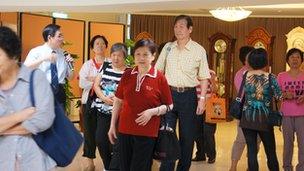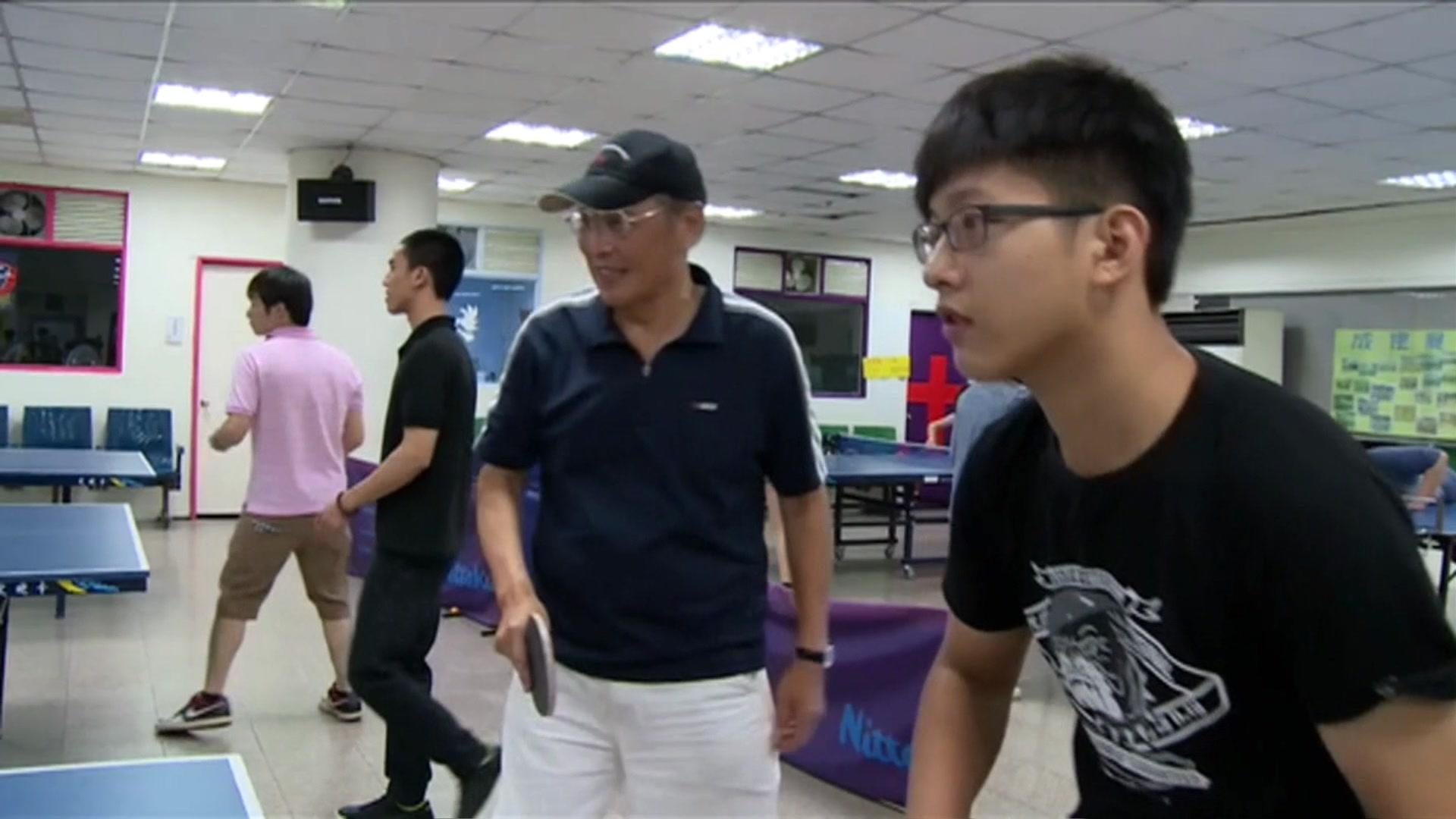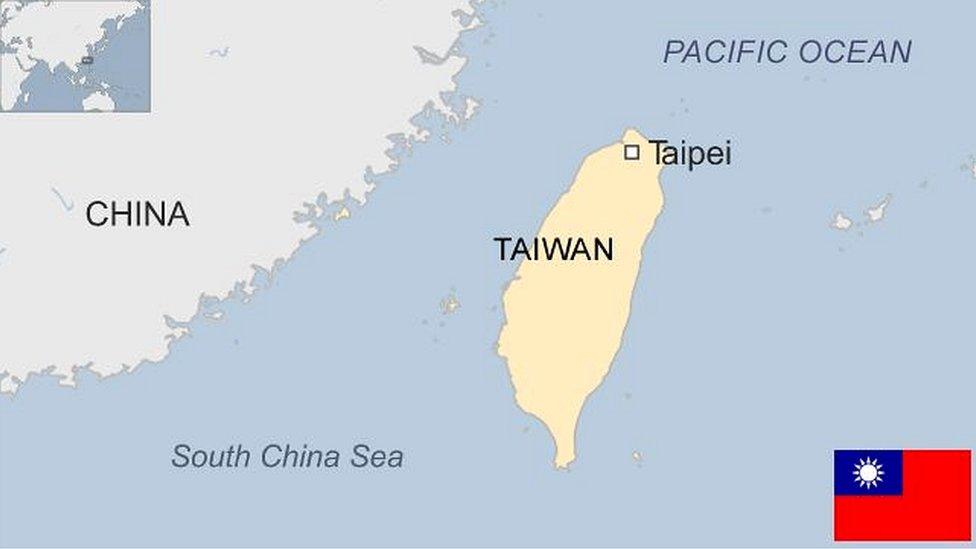The older students who could save Taiwan's universities
- Published

Senior citizens in Taipei enrol for classes
Every night after dinner, many of Taiwan's older people go out to nearby parks to chat with their neighbours, or stay home to watch TV and play with the grandchildren - but not 62-year-old Yu Chin-shan.
He takes his briefcase full of books and notebooks, and goes to college.
The semi-retired Mr Yu owns an IT services company and has been a boss for 20 years. But now he wants to fulfil a dream he couldn't afford when he was younger.
"I didn't go to college when I was young because my family didn't have the money. So I started working and eventually started a business. But I found there were many things about business management that I still wanted to learn," said Mr Yu.
He is among a new wave of older people going to college for either short-term classes or degrees as Taiwan's life expectancy increases and the population ages.
In 2008, Taiwan's government began offering subsidised university courses for older people, as a way to help them live more active lives.
Falling enrolment
At first, older people had to be persuaded to attend college. Now they bring their friends and travel from other cities to take classes ranging from healthcare to history and law.
This year, 100 universities in Taiwan have offered these courses and the older student population has shot up from about 800 in 2008 to more than 3,000 today.
This is happening as many of Taiwan's 160 universities are facing declining enrolment from younger students.
At Taipei's China University of Science and Technology, the student population has dropped by several hundred this year. The university had 10,000 students a few years ago, but is now down to about 9,000.
Universities, who must compete for the shrinking number of students, fear that some will have to close in the coming years if the trend continues.
The university blames the decline on Taiwan's low birth rate. Many young people are delaying getting married, not marrying at all, or are having fewer children or none at all.
Meanwhile the island's universal health care system, which provides medical care to 99% of the population at relatively low costs for patients, is also improving health and prolonging the lives of Taiwan's people. The average lifespan in Taiwan has reached 80 years.
'Huge market'
As early as 2016, Taiwan's 65-and-overs will outnumber those under the age of 14 for the first time. By 2060, four in every 10 people on the island will be 65 or older.
Taiwan's population is ageing and university are trying to boost enrolment by catering for older students.
Tien Chen-jung, president of the China University of Science and Technology, says some institutions, including his own, are hoping to attract more older students - many of whom never had the chance to go to college, or even secondary school back in the days when Taiwan was still a developing economy.
"We feel this is a huge market," Mr Tien said. "Many elderly people don't want to just stay at home all day. They have a thirst to learn. We've found that with the right programmes and good teachers, they are very happy to take classes here, and we believe they will even pay full tuition to get a degree."
Enrolment among older people has increased by about 25% a year over the past few years, with nearly 1,000 enrolling last year.
After taking the subsidised classes, Mr Yu became even more interested in learning. This year, he enrolled for a degree in enterprise management.
"Some people might think it's too late for me to go to college, but I think it's never too late to learn. I believe in the saying, 'Live until we reach old age, learn even after we've reached old age,'" he said.
"I think lifelong learning is very important. It keeps our mind active and strong."
For his bachelor degree programme, Mr Yu even has to take general education courses, like his younger classmates.
That includes sports. In a school gymnasium full of young students playing table tennis one night, he's clearly the only one with gray hair.
But although he hasn't played in 40 years, he returns his opponent's serves almost every time.
He's not only keeping up in this and other classes, he's doing better than some of his younger classmates. That's perhaps a sign of what's to come, for Taiwan's rapidly ageing society.
- Published17 October 2013

- Published15 January 2024
